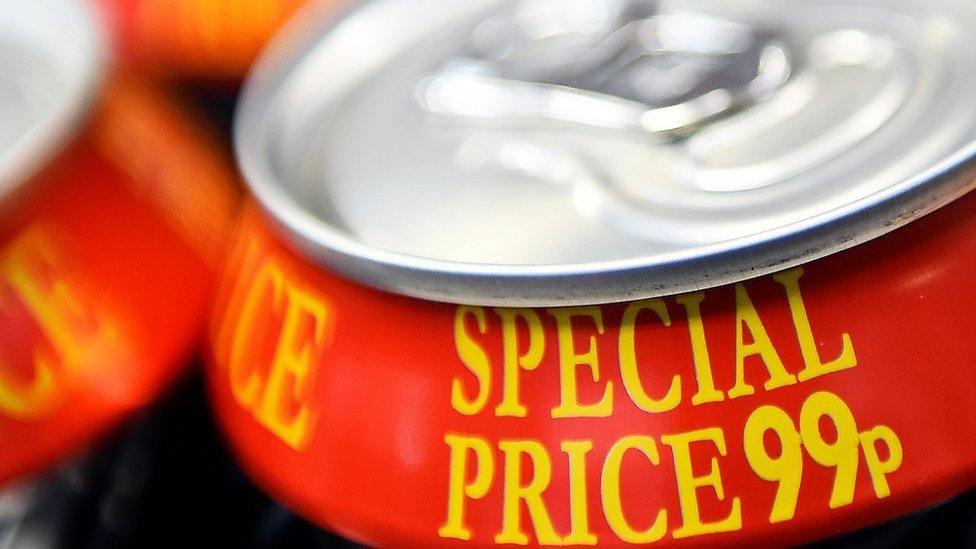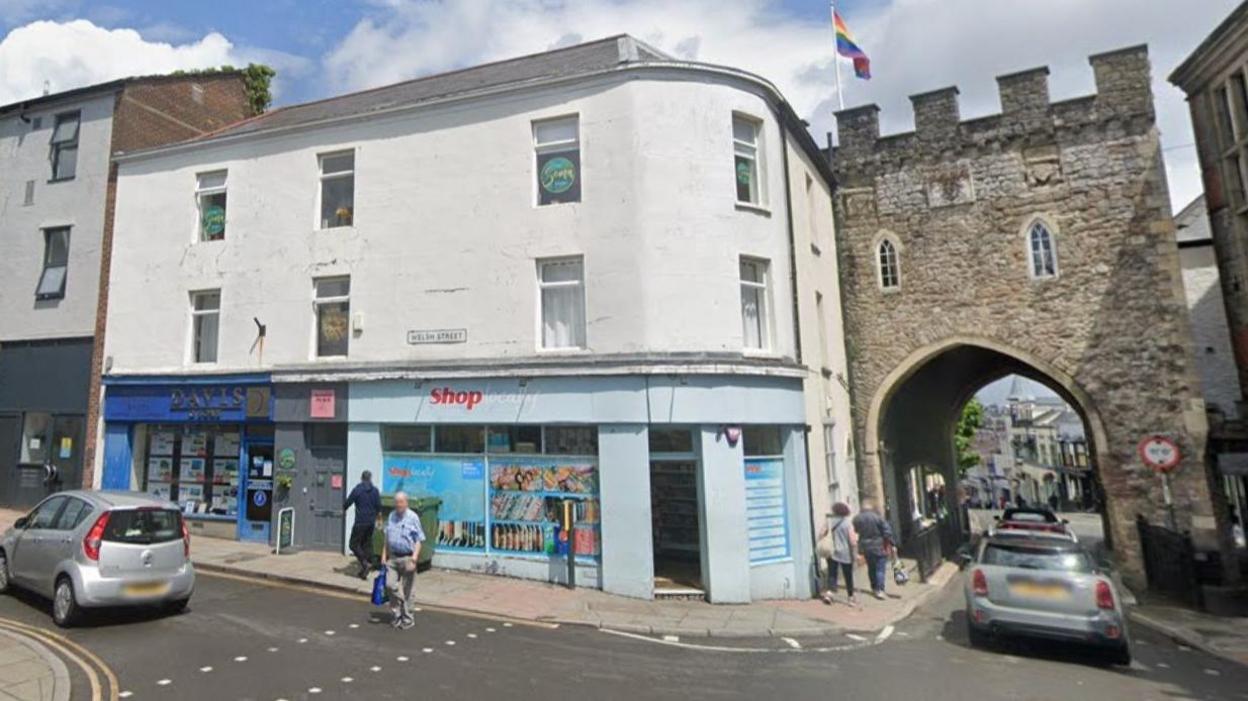Problem drinkers turn from cider to vodka

Some problem drinkers swapped cheap cider for "litres of vodka" since the minimum price scheme came in, a report suggests
- Published
A change in alcohol pricing in Wales has pushed problem drinkers away from cheap cider and towards strong spirits, a study suggests.
A minimum price of 50p per unit was introduced in Wales in March 2020.
A survey of 138 people in Wales who had sought help for problem drinking found some had swapped to "buying litres of vodka", external.
A report, published on Wednesday by the Welsh government, also says that some problem drinkers are going without food or heating, begging, turning to sex work, or stealing to pay for drink.
The Welsh government said it would hold a public consultation into the law.
The Minister for Mental Health and Wellbeing Sarah Murphy said in response to the report that people buying less cheap, high-strength booze, was a "positive step towards reducing alcohol-related harm and supporting people to drink responsibly".
Unis need more drink-free events, urges student
- Published17 September 2024
Minimum unit alcohol price has 'lasting impact'
- Published29 May 2021
How will minimum alcohol pricing work in Wales?
- Published2 March 2020
But the report also found the minimum price scheme, similar to rules in Scotland and Northern Ireland but not in England, had little impact on people's drinking habits as a whole, external.
It said the "most marked in the changes observed was that of a switch away from the previously cheap cider products towards spirits, wine, and strong lagers, rather than any reduction in consumption".
The National Survey for Wales (2022-2023) suggests 25% of males and 10% of women drink above recommended weekly guidelines.
Some retailers told researchers that some shops had stopped selling large bottles of cider, external - two, three or five litre bottles - as sales had fallen significantly after the price increase.
A 30-second guide to how the minimum price for alcohol is worked out
In the survey of the 138 problem drinkers, only a small number said the increase in the price had reduced the amount they were drinking.
The research states that "contrary to the policy's goal of reducing drinking amongst hazardous and harmful drinkers, many respondents reported no change or even an increase in their intake, as stronger drinks are often the most economical".
Many drinkers told researchers that it had "pushed dependent drinkers toward stronger alcoholic beverages, especially vodkas".
"Some have continued to maintain or even to increase their consumption despite the policy, which was intended to reduce consumption," the researchers write.
One drinker said: "The unit price has made weak beer too expensive. So I switched to harder stuff for more bang for my buck".
Another said: "The only effect that minimum pricing has had is to make my drinking worse.
"I can't have my [white cider brand name], which fills you up dead quick and makes you too bloated to drink anymore.
"You have to end up switching to wine, which is all stronger.
"Then you think 'Whisky's the same price', and you end up with a bottle of whisky.
"Then once you start on the whisky you have a bottle a day, then you're on two bottles a day."

Researchers looked at the effects of the minimum pricing law
The researchers also heard that problem drinkers on low incomes came under increased financial stress and coped by "going without food or paying other bills" and going to foodbanks.
There was a concern from support workers that this had increased since the introduction of minimum pricing.
But the report says that the cost of living crisis and impact of Covid, has compounded the effect on low-income dependant drinkers, "leading them to prioritise alcohol over essential living expenses".
Some described sacrificing necessities such as food, bills, utilities and clothes whilst others said they had taken out "pay day loans" and done sex work, while others said they had resorted to shoplifting to fund their drinking.
Could people travel over border for 'bargain booze'?
Alcohol support workers told researchers while there were limitations in the policy being able to stop harmful drinking, they would like to see the minimum price remain in place.
Despite concerns that the policy could see people travelling across the border to buy bargain booze in England, the report states that this has not been significant.
"The price differential between Welsh and English alcohol products would have to be significantly greater to induce mass behaviour," the report says.
While most pubs, bars and shops were complying with the law, researchers found "anecdotal accounts of 'under the counter' alcohol sales" had been reported in Welsh and Scottish treatment evaluations.
Last year, a Wrexham corner shop was shut down for three months, external after being found to be selling illegal vapes and cigarettes as well as alcohol below the 50p per unit price.
"Assessing the impact of the legislation against the backdrop of the pandemic, persistently high levels of inflation and the cost-of-living crisis has been challenging," Ms Murphy said.
"However, the studies suggest the legislation has been broadly welcomed and implemented in an effective fashion.
"I want to be clear the legislation is only one component of our wider alcohol policy interventions."
Related topics
- Published4 January

- Published15 March 2024

- Published15 October 2024
